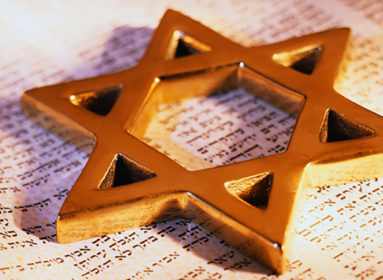
By Shlomo Riskin
“But the midwives feared God and they did not do as the king of Egypt spoke to them, and they allowed the male babies to remain alive” (Exod. 1:17).
When Pharaoh decided to perpetrate genocide against the Jews, he ordered the midwives to kill every male baby born to a Hebrew mother.
But Shiphrah and Puah, the Egyptian midwives of the Hebrew women (or Jochebed and Miriam, who actually were Moses’ mother and sister, and given nicknames relating to their midwifery) refused to follow Pharaoh’s orders – because they “feared” God, and preferred God’s law of “thou shalt not murder” to Pharaoh’s decree of genocide against the Hebrews.
Indeed, the entire story of our Egyptian experience is fraught with instances of courageous individuals – Egyptians and Hebrews alike – whose fealty to a higher moral authority gave them the fortitude to risk their own lives by refusing to carry out Pharaoh’s orders so as to prevent genocide of the Hebrews.
To understand this outstanding instance of a righteous gentile whose rebellion against tyranny enabled not only the Hebrews but also the Torah to develop and flourish, let us examine a few verses of our reading in accordance with the interpretation of the Netziv (Rabbi Naftali Tzvi Yehuda Berlin, dean of Volozhin Yeshiva, 19th-century Lithuania.)
“Hoping to save her baby brother Moses from the Egyptians who were under orders to cast any Hebrew baby boy they saw in the Nile” (ibid. 22), Miriam places him in a basket hidden along the banks of the river.
Pharaoh’s own daughter, Bitya, comes down to bathe in the river; her retinue of women departs to the river’s edge to allow their mistress a measure of privacy. When Bitya spies the wicker basket hidden among the reeds, she even sends away her trustiest maidservant, who generally never left her side. She retrieves the basket, and as she suspected, finds a Hebrew baby. Miriam, waiting nearby, offers to find a Hebrew wet nurse for him.
According to the Netziv, the text then states that the child grew up, and was brought to Bitya; she called him Moses, and Bitya justified her right to adopt him since she had drawn him out from the river where his parents had left him and brought him up as her own, risking her life by refusing to follow her father’s orders. From Bitya’s perspective, this act of courage was tantamount to a biological mother shedding blood and risking her life to bring her baby into the world.
It is not by accident that it is Moses, brought up by Bitya in Pharaoh’s court, who rebelled against Pharaoh and killed an Egyptian taskmaster. His model for his refusal to follow orders was none other than his Egyptian mother, Bitya.
During the Nuremberg Trials against Nazi war criminals (1945-46), the major line of defense used by the Nazi defendants was that a soldier cannot be held accountable for actions which were ordered by a superior officer. Even if this argument was not always sufficient for exoneration, it was certainly deemed sufficient for lessening the punishment. Ultimately, Nuremberg Principle IV concluded that “the fact that a person acted pursuant to the order of his government or of a superior does not relieve him from responsibility under international law, provided a moral choice was in fact possible to him.” In other words, if he would be severely punished or murdered for refusing to obey an order to commit genocide, he would not be culpable.
How different is the Talmudic position of 2,000 years ago! “If a gentile tells you to kill X or he will kill you, you must allow yourself to be killed, for who says that your blood is redder than his?” (B.T. Sanhedrin 74a). For Jewish law, Bitya the daughter of Pharaoh and Moses the Master Prophet led the way.
Israeli law was established by the Kafr Kasim Massacre Judgment (1957), which ruled that a soldier is not obligated to examine the legality of each military order but must refuse a specific order that is “blatantly illegal, so illegal that it is as if above it flies a black flag declaring ‘prohibited,’” in the words of Judge Benjamin Halevy.
I believe that every soldier must give priority to God’s law over human law, even the law of the IDF. However, refusing to carry out a command of the IDF must only apply when the individual believes that by carrying out the order an innocent Jewish or gentile life is being taken, or that fundamental human rights are being removed. In the instance of giving land for peace, however, Rabbi J.B. Soloveitchik ruled that the elected government of Israel has the right to decide whether sacrificing land for peace is operable and under which conditions. Such a decision must be governmental and not individual, since lives will be at stake with either decision!







 Southern New England Jewish Ledger
Southern New England Jewish Ledger















